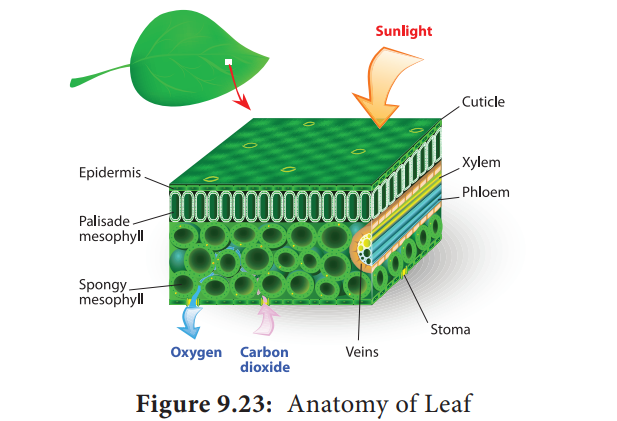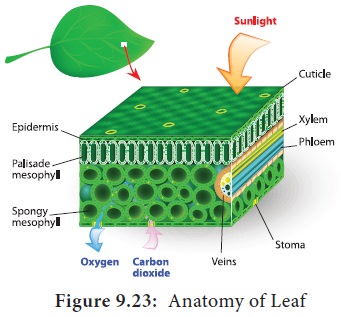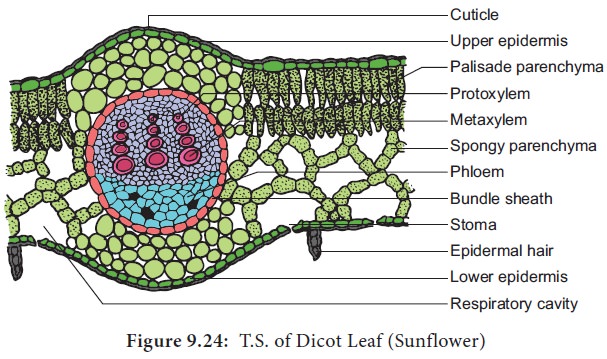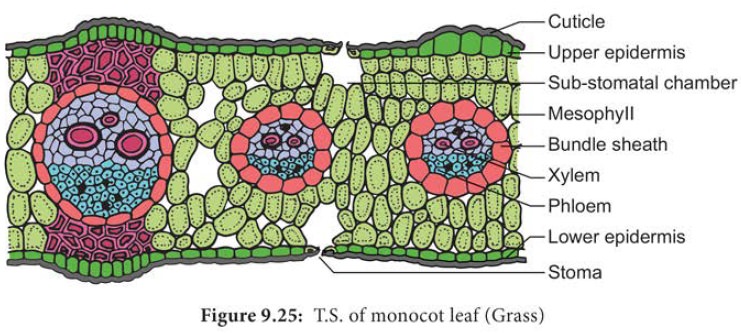Chapter: 11th Botany : Chapter 9 : Tissue and Tissue System
Anatomy of a Dicot and Monocot Leaves

Anatomy of a Dicot and Monocot Leaves
Leaves
are very important vegetative organs. They are mainly concerned with photosynthesis and transpiration. Like stem and roots, leaves also have the
three tissue system – dermal, ground and vascular. The dermal tissue system consists
of an upper and lower epidermis. The ground tissue system that lies between the
epidermal layers of leaf is known as mesophyll
tissue. Often it is differentiated into
palisade parenchyma on the adaxial
(upper) side and spongy parenchyma
on the abaxial (lower) side.
In
dorsiventral leaves the mesophyll is differentiated into palisade and spongy
parenchyma, the former occurring on the upper side and the later on the lower
side Example: Sunflower. In isobilateral leaf palisade is present on both sides
of the leaf and inbetween them spongy parenchyma is present. Example: Nerium.
In some plants Example: Ficus calcium crystals are present. There are also
leaves where spongy tissue alone is present in some epidermal cells Example:
Grasses.

The
presence of air spaces is a special feature of spongy cells. They facilitate
the gaseous exchange between the internal photosynthetic tissue (mesophyll) and
the external atmosphere through the stomata.
The
vascular tissue system is composed of vascular bundles. They are collateral and closed. The vascular tissues forms the skeleton of the leaf and are
known as veins. The veins supply
water and minerals to the
photosynthetic tissue. Thus the morphological and anatomical features of the
leaf help in its physiological functions.


Related Topics